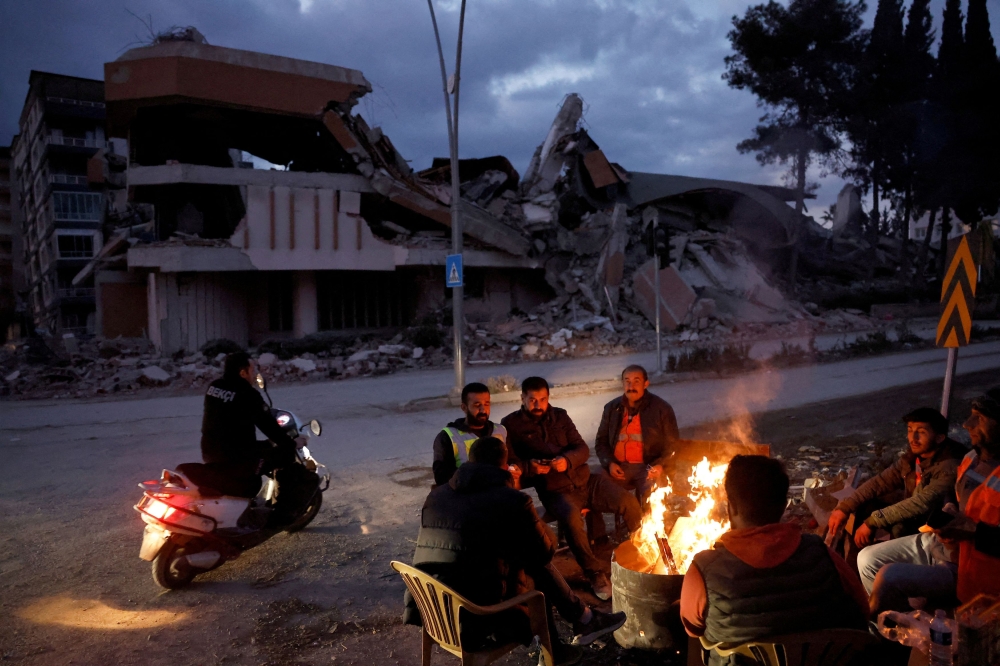ANTAKYA, Turkey, Feb 25 — Omran Alswed and his family are still living in makeshift shelters almost three weeks after the massive earthquake in southern Turkiye, having been unable to find a place in an official camp.
Nearly two million people left homeless by the quake are being housed in tents, container homes and other facilities in and beyond the region, according to Turkish authorities, but Alswed, 25, said his extended family had not yet benefitted.
“Our houses are heavily damaged so we have taken shelter here, in a garden in our neighbourhood,” said Alswed, who studied nursing at Siirt University in southeast Turkiye.
“The biggest issue is tents. It has been 19 days and we are yet to receive a single tent. We also applied to move into a tent camp but they said the ones nearby are full,” he said at a makeshift settlement near the city of Antakya.
Alswed was among 60 Syrians, including at least a dozen young children, staying beside the road to Reyhanli town in 11 shelters composed of plastic sheeting, blankets, bricks and chunks of concrete from damaged buildings.
He was speaking after Turkiye’s Disaster and Emergency Management Authority (AFAD) said overnight that the death toll in Turkiye had risen to 44,218, bringing the total toll including Syria to 50,000.

AFAD said over 335,000 tents have been erected in the quake zone in Turkiye and container home settlements were being established at 130 locations. Nearly 530,000 people have also been evacuated from the quake zone.
Alswed said he had been calling official phone numbers and talked to AFAD and other aid groups about their situation, including asking for tents, while smaller NGOs have brought canned food, toilet paper and some toys for the children.
Outside Antakya, on the road to the town of Kirikhan, a woman named Ayse was staying in a greenhouse by her damaged home after authorities told her there were no tents available.
“We didn’t get a tent, but there are others in worse conditions than us and I want them to get them first. At least we have a greenhouse. I took my children and brought them here,” she said, adding that her husband had pulled a sofa out of the house for the children to sleep on.
“We’ve got supplies, but they said for the moment there is no tent. We are waiting.” — Reuters






















